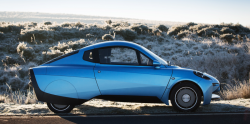Thanks for posting up that article, in the top 10 largest companies in the World in terms of revenue the "energy companies" (oil companies) feature heavily. Not surprising really that Shell want to "protect their interests". VW also made it into the top 10 in 2015, although their revenues have taken a bit of a pasting recently, and maybe their latest announcement reflects, just a couple of months later, that they are beginning to swim with the tide.
There is obviously a serious political will in Europe to turn towards electric/fuel cell technologies for cars, and if China as hinted by the article is also of that persuasion, it will be interesting to see how the change develops.
It will also be interesting to watch the strategy of the oil companies in the top 10. Will they fight and block as best they can, or switch focus, and try to make money out of the new networks needed to support electric/fuel cell vehicles. Will they devote R&D to the manufacture of Hydrogen with efficient "carbon-capture" at source, rather than the production of petrol and diesel to be burnt in billions of individual internal combustion engines, from the oil they extract from the earth.
I would probably expect a few blocking tactics to begin with, and maybe with an inevitable fall in demand, price reductions/litre to erode the economic case in individual's buying decisions for new vehicles, and hence slow down the take up of the freely available hybrids and all-electric vehicles even now.
I read a bit of very probably "spinning of the facts to suit your own puproses" in the blurb for the Audi e-tron Hybrid that the average trip length for journeys made in the UK was 7 miles. If this is the case, someone buying a hybrid even with a paltry range on electric-only like the Audi of only 20 miles, is going to be running it on 100% electric most of the time.
Regards Neil



